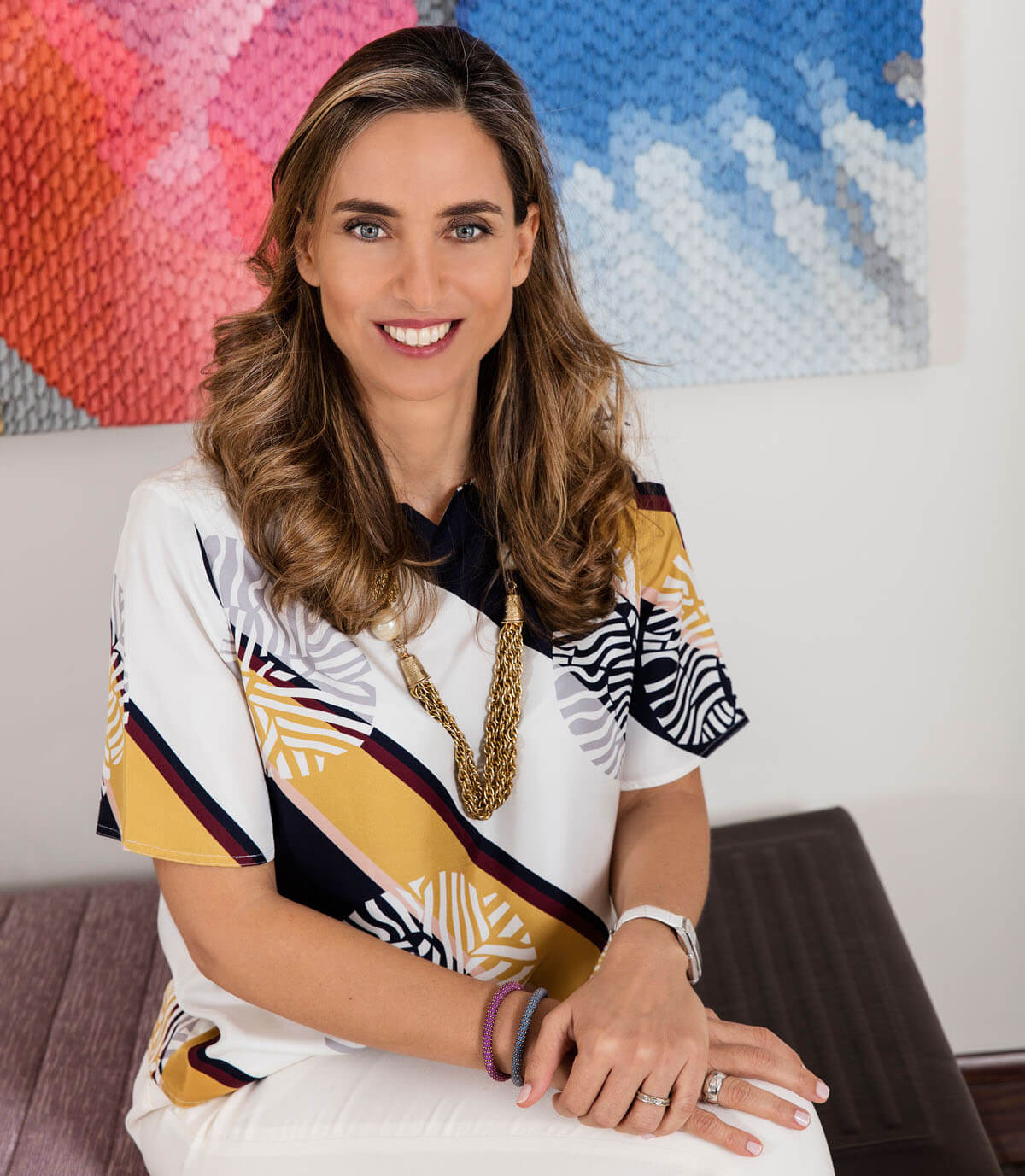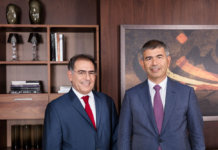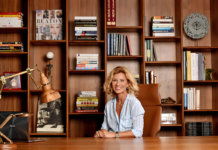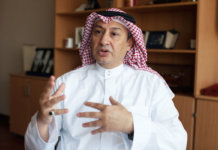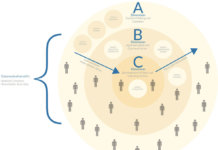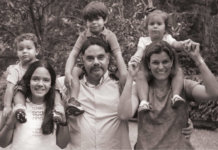The Obegi Group is one of a few family businesses in the region that can call themselves centenarian. The four-hundred-year Ottoman Empire had entered its final age when the company of young entrepreneur Yordan Obegi, spread across the wilayats of Aleppo, Damascus, Baghdad, Mossul, Southern Anatolia, as well as the Sanjaks of Ladikiya and Trablous, and the Moutassarrifia of Lebanon. At the time, Yordan Obegi made himself known for introducing chemical dyestuffs for textile from Germany, rugs, and leather products to the market.
The second generation, Bechara and Henry, followed in their father’s footsteps, developing a family business into a network of companies across various industries that today spans the Middle East and Europe.
In the 2000s, third-generation siblings, Yordan, Riad and the late Georges, took the reins of the business which currently employs over 2,500 people across 14 countries.
Tharawat met with Karine Obegi, third-generation in-law family member, and Managing Partner of Obegi Home. In the setting of her elegantly decorated family home in Dubai, Karine described with passion how consistency in values and entrepreneurial drive have made the Obegi Group overcome challenges it faced throughout the decades and why it is heading into the future with confidence.
What would you say are the core values of the Obegi Group?
Our founder, used to say “The trick is to avoid tricking”. What is most important to us, a core value we all share, is “doing business with ethics”. It lies at the heart of everything we do. Following this motto is not easy, but the Obegi family demonstrates that with discipline and conviction it can be achieved. Our group was built on this foundation and this is what keeps us strong and united.
Another key value is harmony. To maintain it becomes more and more complex as the family grows with every individual bringing in his personality. It is a constant exercise in communication and finding balance. It requires sacrifice from everyone but a great deal depends on maintaining a shared vision, not only for the business but also for the family.
Finally, we believe that great success over generations cannot be obtained without hard work.
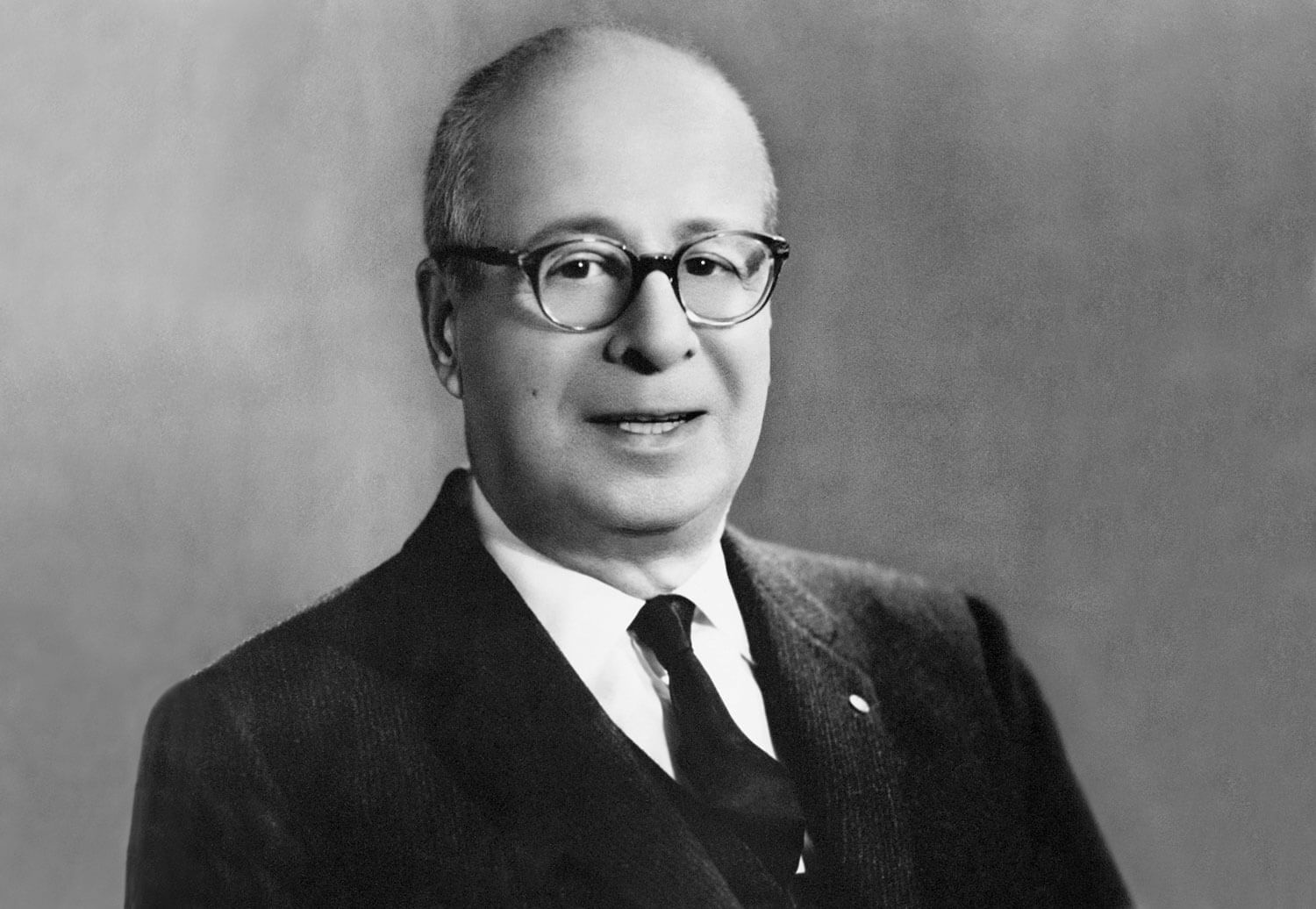
Obegi Group emphasises professionalism in its vision statement. How do you balance structure with the advantages that come with the informality of being a family business?
Informality derived from internal trust may be the greatest asset of family businesses, all the more as in our case it includes partners, collaborators, members of our team, whom we have worked with for decades. They are all trusted members of our big family.
Family spirit is not antonymous with openness; we are keen to represent the interests of our non-family partners, even more so when they own a minority share in the business.
However, we can only reap the benefits of this family spirit if we do not fall into the trap of becoming too informal. To this purpose we emphasise the rules of corporate governance, working procedures, and audit standards; yet the most efficient safeguard against the dangers of becoming unstructured is to trust others, invite them in, as managers, as partners, and, most particularly, as independent board members.
You joined your husband’s family business soon after your marriage. How did this come about?
Until 1998, I worked in Paris, as part of a large consulting organisation. I returned to Lebanon, and met my future husband Yordan who introduced me to his family business. I had found a purpose that I could identify with: preserving and enriching this great legacy and these wonderful values for our children.
In 2005, we made the decision, as a family, to relocate to Dubai and having discovered my passion for design and interiors, the obvious next step was to manage Obegi Home, the family’s lifestyle brand. The support I received from the family since I have joined has been tremendous. I am but a recent addition to this great story and I hope I am making a valuable contribution.
Have you ever felt conflicted about balancing the roles of mother, wife, and business leader?
Female and male leaders both need the same skill set to be successful, but as women, we are closely watched, especially in the Middle East. It is even more complex in a family business because you stand for your role in the family and for your role in the business.
I believe that one of the greatest hurdles to success we face, as women, is guilt. You either feel guilty towards your children, for not being at home, or you feel guilty towards the office, for spending time with the family. I had to make the conscious effort to let go of that continuous feeling and be very clear and organised about how I spend my time. This has enabled me to make the most of both environments and to be happy and fulfilled and to be able to enjoy both my family and my work.
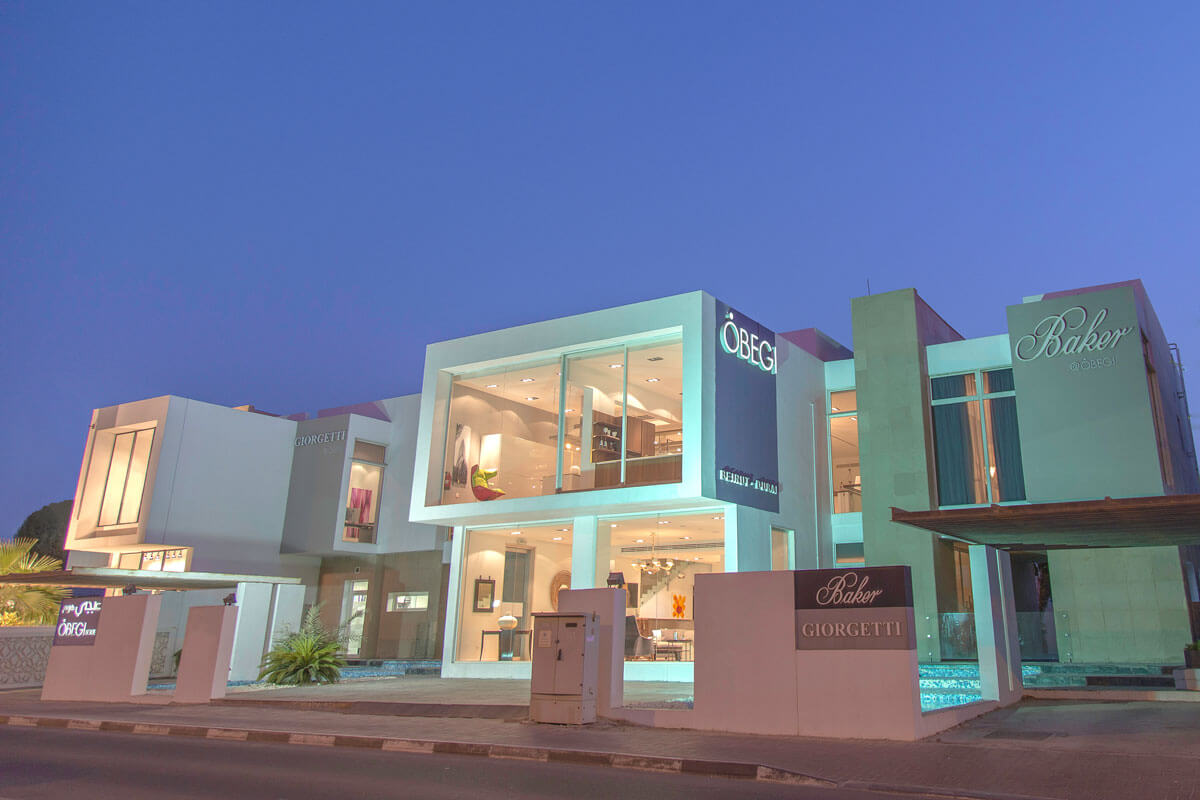
Obegi Home was established in 1973. What key changes did you bring to the business when you took over? What does the business focus on today?
Initially, Obegi Home was more a passion than a business for the Obegi family. It was managed as a boutique business in Beirut and even though it was in high demand, it was not one of the Group’s core activities.
When I took over the management of the company, I sought to take advantage and develop the artistic, bespoke flair of the brand and turn it into a commercial success.
Even a decade later, I am passionate as ever, about the work we do. It centres around creativity and personalisation. Even if we are not aware of it, design surrounds us. In our work we highlight what it can do for our clients’ homes or offices, places around which life revolves.
We hear, advise, assist our client in the project of materialising, the home or office environment that expresses, and reflects, their taste. It affirms their right to fashion their own private world and sets out the functional space that provides them with the means to be efficient, fulfilled and inspired in their day-to-day activities.
We work one on one with our clients to design a home or lifestyle for them, we don’t just sell them kitchens, wardrobes or furniture. Everything has to be conceptually designed just for their house or apartment. It is our way of becoming part of their story.
We are also trying to stay ahead of the curve, by designing avant-garde show rooms. I think all our innovative capacity is displayed in the way we present our products in these spaces. We are building a new showroom in Dubai at the moment and it will be a totally new experience for our customers. We want to present them with a vision of what their homes could look like.
Attention to detail and care for conscious design is not restricted to Obegi Home; it is implemented across the group’s activities which include manufacturing, chemicals, banking and food production and distribution. We are always making sure that our collaborators work in a consciously designed environment which inspires enthusiasm and dynamism.
[ms-protect-content id=”4069,4129″]
Obegi Group is active internationally. How did the family business approach expansion?
The Obegi family very early on expanded beyond Lebanon and Syria. We have always been open to opportunities in different countries.
With Obegi Home it was a natural progression. We started our business in Lebanon in 1973 and our clients soon began asking for us in other countries across the Middle East. We were being hired for our services outside of Lebanon and understood that we had the opportunity to internationalise our expertise.
When we started, 100% of our revenue was generated in Lebanon, nowadays 70% is created in Dubai. The same concept applies in every other business under the Obegi Group. Of course, depending on the industry, different expansion routes were taken.

What are the next big frontiers for the Obegi Group?
We are archiving a lot of our history in books and documentaries in order to make sure that our legacy will be easy to transmit and comprehend.
For us a great challenge will lie in succession. We are trying to ensure that our children see us live our values every day. In many ways, the business is the theme of our lives and we see them understand more and more what we do, as they grow older.
We are also seeing to it that the next generation spends a lot of time in the business through internships for instance. They get to talk to people who have been working with us for decades. They can teach them a lot about our philosophy.
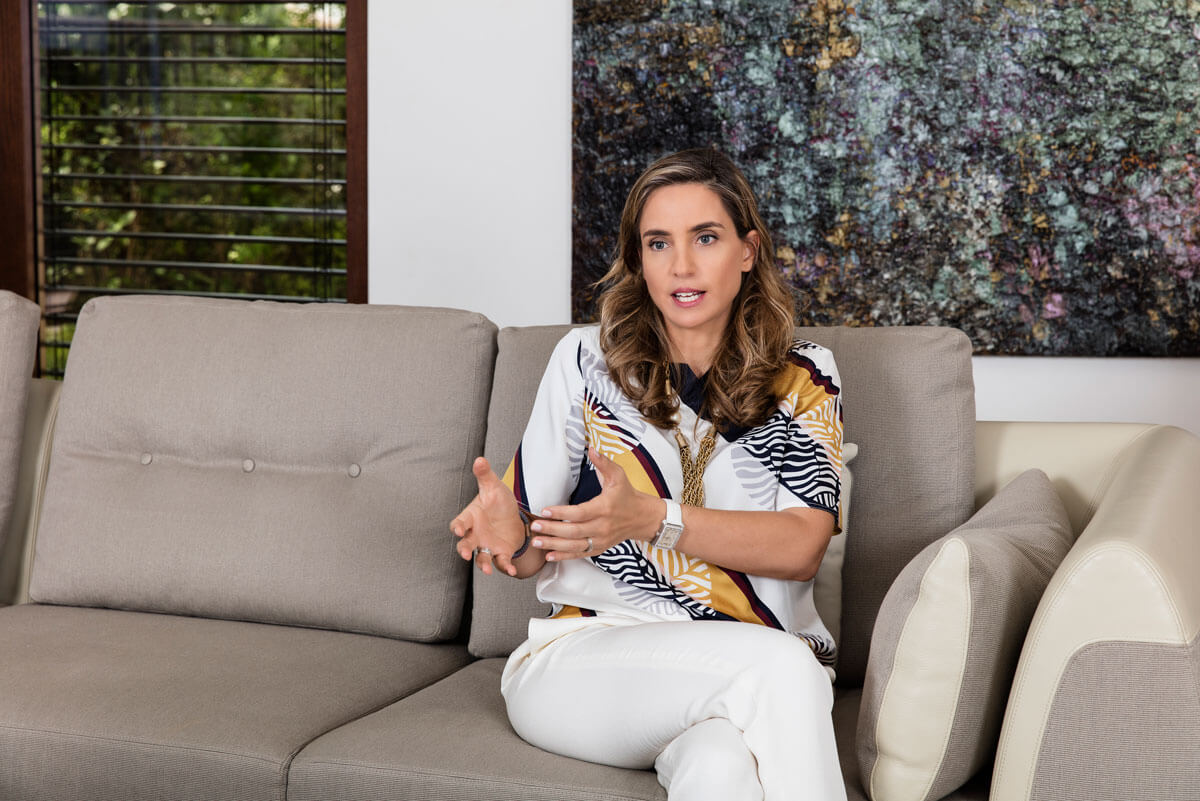
Important however as the legacy may be, we will not let it weigh on us. We are as free as the founders of the business were. We exchange thoughts with other family businesses to learn about new opportunities and ways to adapt and thrive in a changing environment. We have it as a policy that each family member has to have at least three years outside experience before joining the business. The eldest fourth generation member has been recruited in Ireland at Dropbox, and we believe his input of ideas and projects will provide the group with renewal and impetus.
The Middle East is a difficult region to work in; it has presented a challenge throughout the family’s entire history. The recent years have also brought us personal mourning, but the family stands stronger. We are confident about our future and there is a great deal of encouragement in knowing that our legacy has already lasted over a century and is confidently moving into the future.
Tharawat Magazine, Issue 28, 2015
[/ms-protect-content]


